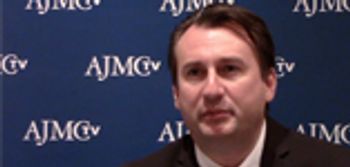
New immunotherapies and biologics that are changing the landscape when it comes to treating patients are the most exciting development in oncology in the last year, according to Lucio Gordan, MD, of Florida Cancer Specialists.

New immunotherapies and biologics that are changing the landscape when it comes to treating patients are the most exciting development in oncology in the last year, according to Lucio Gordan, MD, of Florida Cancer Specialists.

As immunotherapy continues to show promise in solid as well as liquid tumors, clinicians have been evaluating these agents in combination. During a session on the second day of the ongoing annual meeting of the American Society of Clinical Oncology, in Chicago, IL, the results from some of these trials were shared.

On the first day of the annual meeting of the American Society of Clinical Oncology, healthcare experts from the United States, Canada, and the United Kingdom, compared and contrasted the care models that are widely adopted in each nation.
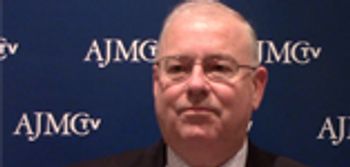
More than 400 comments were sent in regarding the American Society of Clinical Oncology (ASCO)'s Value Framework, and they will be incorporated as the framework evolves, explained Stephen Grubbs, MD, vice president for clinical affairs at ASCO.

One of the important findings from the American Society of Clinical Oncology’s report is that cancer mortality has gone down, said Debra Patt, MD, MPH, MBA, director of public policy at Texas Oncology.

Luis A. Diaz, Jr, MD, associate professor of oncology, Johns Hopkins Sidney Kimmel Comprehensive Cancer Center, discovered that patients with high mutational burden with mismatched repair responded well to checkpoint inhibition of PD1.

Much-anticipated trial results were presented on the third day of the annual meeting of the American Society of Clinical Oncology, held in Chicago. These included phase 3 results from the CheckMate 067 trial and a phase 2 study with elotuzumab.

While the clinical data presented at the annual meeting of the American Society of Clinical Oncology (ASCO) created waves, a session on value had an equally significant impact as oncologists thronged to hear stakeholder voices define this, as yet abstract, concept of "value" in cancer care. The session brought together a patient representative, an oncologist, an ASCO representative, and a payer.

The Patient Advocate Program (PAF) serves patients with chronic, life threatening or debilitating diseases by providing direct financial support as well as case management support. Alan Balch, PhD, chief executive officer, PAF, explained that PAF guides their members through insurance systems when issues of access or affordability arise for the individual.

A late-breaking abstract session early on the second day of the annual meeting of the American Society of Clinical Oncology was reserved for the latest data from clinical trials evaluating the new immuno-oncology agents of the PD-1 inhibitor class.

Supporting shared decision making between cancer patients and oncologists starts with an understanding of what the physician's role is, explained Peter P. Yu, MD, FACP, FASCP, president of the American Society of Clinical Oncology and director of cancer research at Palo Alto Medical Foundation.

During the Health Services Research and Quality of Care session on the second day of the annual meeting of the American Society of Clinical Oncology, being held at the McCormick Convention Center, Chicago, oncologists discussed barriers to patient participation in cancer clinical trials, and discussed attributes of the high cost of care.

The introduction of the immune regulatory checkpoint inhibitors and their impressive results is what John C. Morris, MD, professor of hematology and oncology at the University of Cincinnati, finds most exciting in the area of lung cancer immunotherapy.

On the first day of the annual meeting of the American Society of Clinical Oncology, Robin Zon, MD, a practicing medical oncologist from Michiana Hematology Oncology, PC, discussed the struggle of physicians and the practice staff as they balance administrative burdens with clinical care.
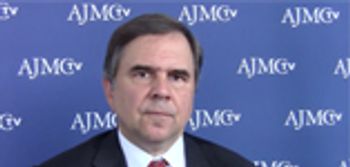
New study results being presented at the American Society of Clinical Oncology's annual meeting in Chicago found that the PD-1 and PD-L1 biomarkers can be used to determine response and resistance, explained Daniel P. Petrylak, MD.
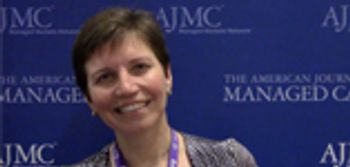
The move to have patients shoulder greater share of their cost of care is particularly challenging in cancer care, according to Jennifer Malin, MD, medical director for oncology at Anthem.

On the first day at the annual meeting of the American Society of Clinical Oncology in Chicago, physicians introduced some of the newer agents currently available to treat lymphoma and described their experience with these agents during the session, "Incorporating Novel Agents into Lymphoma Therapy: Value in Everyday Practice."

Some experts argue that overdiagnosis (OD) and overtreatment (OT) of cancer is common and increasingly costly. Others argue that current cure rates are high because of the screening processes currently in place. Both viewpoints were debated during the session "Overdiagnosis and Overtreatment in Cancer: Point/Counterpoint."

The health services research poster session held in the afternoon on the penultimate day of the 50th annual meeting of the American Society of Clinical Oncology (ASCO) presented different perspectives on issues that determine patient care decisions. This is an important discussion, especially in light of the recent report by The Wall Street Journal on WellPoint's effort to promote oncologist adherence to standardized treatment guidelines.

The discussion on value in cancer care was rekindled today at the 50th annual meeting of the American Society of Clinical Oncology, but this time on a global scale. The session, "ASCO/European CanCer Organisation (ECCO) Joint Session: Value and Cancer Care," saw participation from physicians and economists from around the world, with individual perspectives on defining value and the programs being developed to address the issue.

Velcade (bortezomib), developed by Millenium Pharmaceuticals, is a proteasome inhibitor that is currently approved for the treatment of multiple myeloma and relapsed mantle cell lymphoma. Several abstracts were presented at the annual meeting of the American Society of Clinical Oncology this year for its use in other indications.

The second day at the 50th annual meeting of the American Society of Clinical Oncology ended with a session entitled "Health Care in America in 2014: Current and Future Implications of the Patient Protection and Affordable Care Act" (PPACA). The presenters provided an overview of the recent and anticipated changes related to the PPACA as well as its timeline.

"The Value of Cancer Care and the Professional and Ethical Obligations of the Practicing Oncologist: A Debate" delved into the ethical issues raised by the economic reality of the rising costs of cancer care for the practicing oncologist.

ABT-199, the result of a collaboration between AbbVie and Genentech, is a selective, potent, orally available BCL-2 inhibitor. The drug is being developed in collaboration by the two companies for acute myelogenous leukemia and chronic lymphocytic leukemia (CLL).

While the incidence of cancer continues to grow, novel and targeted therapies being developed have seen much improved survival for even the deadliest of cancers. New innovations in cancer diagnosis and treatment are associated with high cost. Cancer therapy constitutes nearly 11% of the total healthcare budget, and it is rapidly growing.

On the second day of the 50th annual meeting of the American Society of Clinical Oncology (ASCO), a session titled, "Targeting EGFR: the next 10 years" provided a progress report on the successful targeting of the protein in non-small cell lung cancer (NSCLC).

Daniel George, MD, Director, Prostate Clinic, Genitourinary Oncology, Duke Cancer Institute, specifically discusses the immunotherapy agent, sipuleucel-T (Provenge) used in the treatment of prostate cancer.
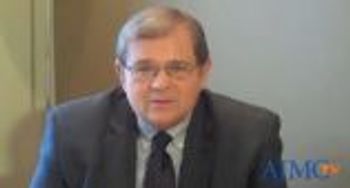
Michael Kolodziej, MD, National Medical Director for Oncology Strategies, Aetna, says that the rapid emergence of precision medicine was one of the more interesting topics discussed at the ASCO 2013 Annual Meeting.

Ongoing shortages of common oncology chemotherapies have compelled physicians to substitute more expensive drugs, delay or suspend clinical trials, or even skip doses of chemotherapy, according to survey results gathered by a team from the University of Pennsylvania.

Michael Kolodziej, MD, National Medical Director for Oncology Strategies, Aetna, discusses the financial challenges associated with the combination of newer novel agents in breast cancer treatment.

259 Prospect Plains Rd, Bldg H
Cranbury, NJ 08512
© 2025 MJH Life Sciences®
All rights reserved.
